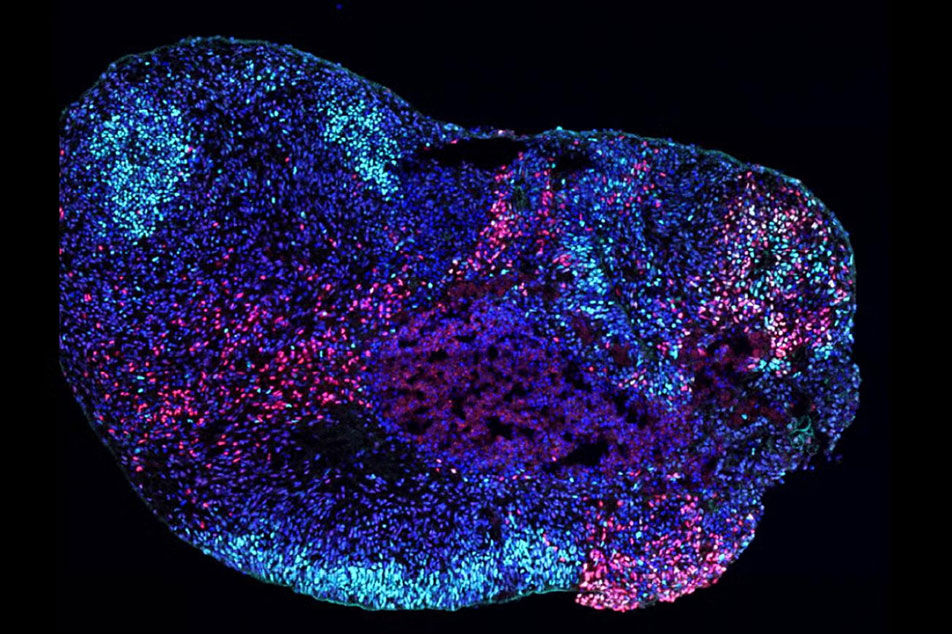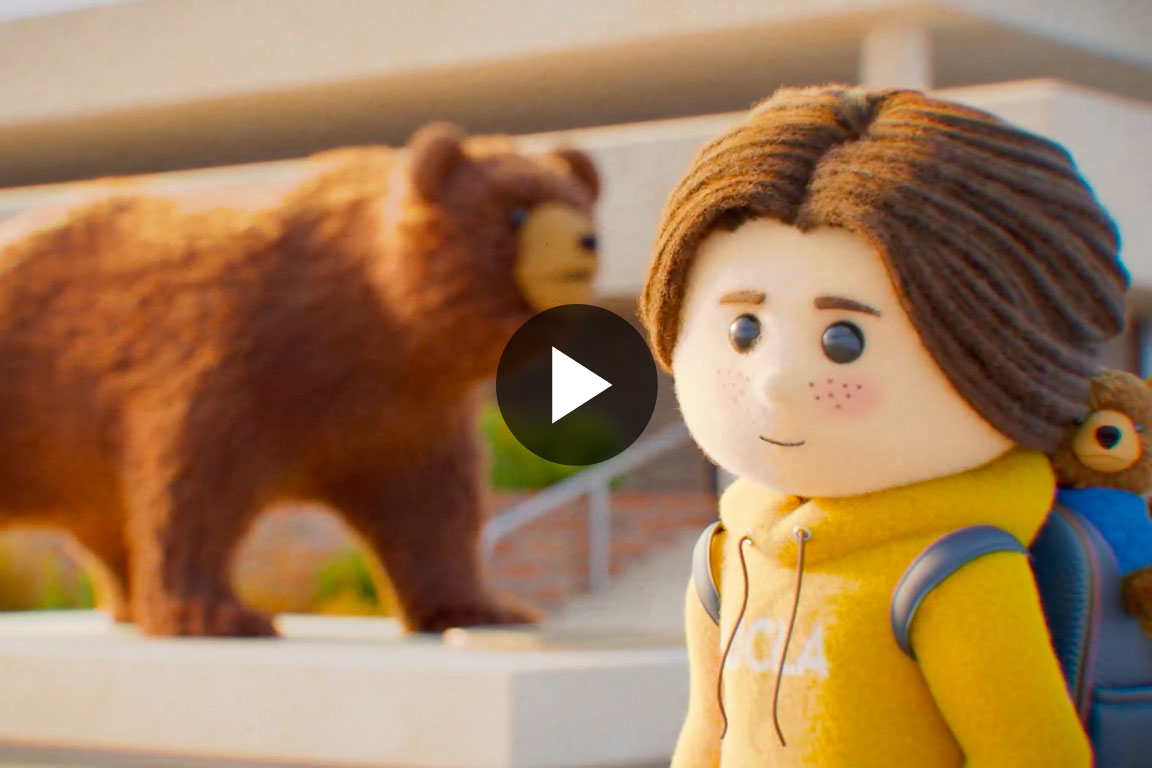
Research Powers Progress
What we discover and create at UCLA — with the help and support of federal grants — goes far beyond the walls of our labs and classrooms. Our life-saving and life-changing research benefits real people across America in transformative ways.
At UCLA, research is fueling breakthroughs that shape a brighter future. From developing new treatments that save lives, to advancing technologies that transform daily living, to exploring the mysteries of the universe, our investigators are driving discoveries that benefit people everywhere.
Each study carries the potential to improve health, strengthen communities, and expand knowledge in ways that touch us all. With sustained support, UCLA researchers continue to turn bold ideas into real-world impact—creating hope, opportunity, and progress for generations to come.
Unlocking the brain’s secrets: How epilepsy genes affect different regions
Thanks to a study using advanced 3D brain models, scientists at UCLA Broad Stem Cell Research Center discovered that a single gene variant can cause a variety of developmental problems often seen alongside epilepsy. These stem cell-derived models could become a vital tool for developing treatments for epilepsy and other cognitive and behavioral challenges.
-
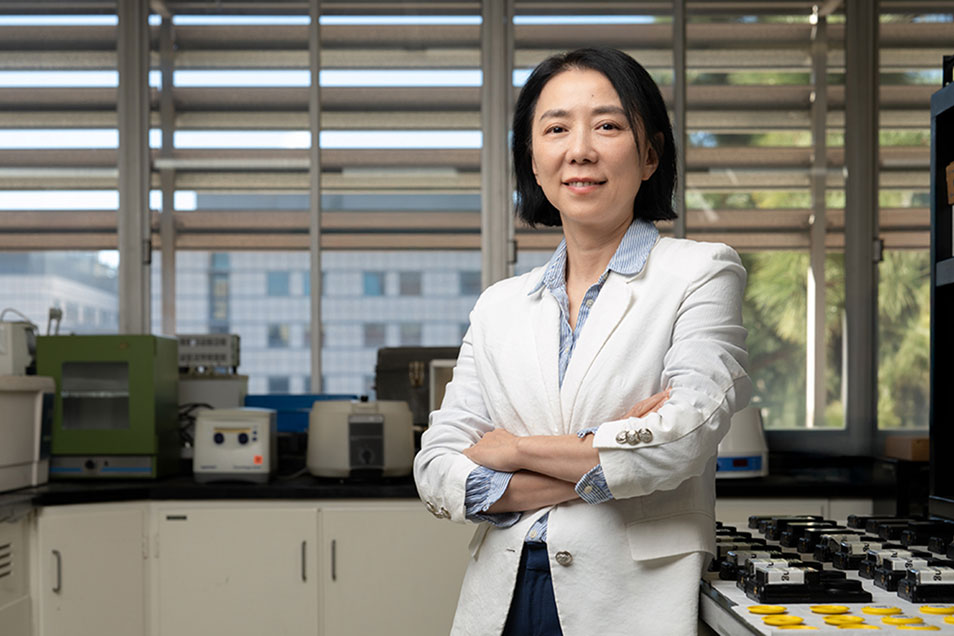
Science that helps L.A. communities breathe easier after fires
Air-quality researcher Yifang Zhu, who is a professor in environmental health sciences at UCLA, leads up a research team that is helping the public better understand the air they breathe during and after fires. The projects include examining air quality during and after the January 2025 wildfires, looking at whether and how smoke-damaged belongings can be cleaned, and creating a real-time air quality network in the Palisades.
-
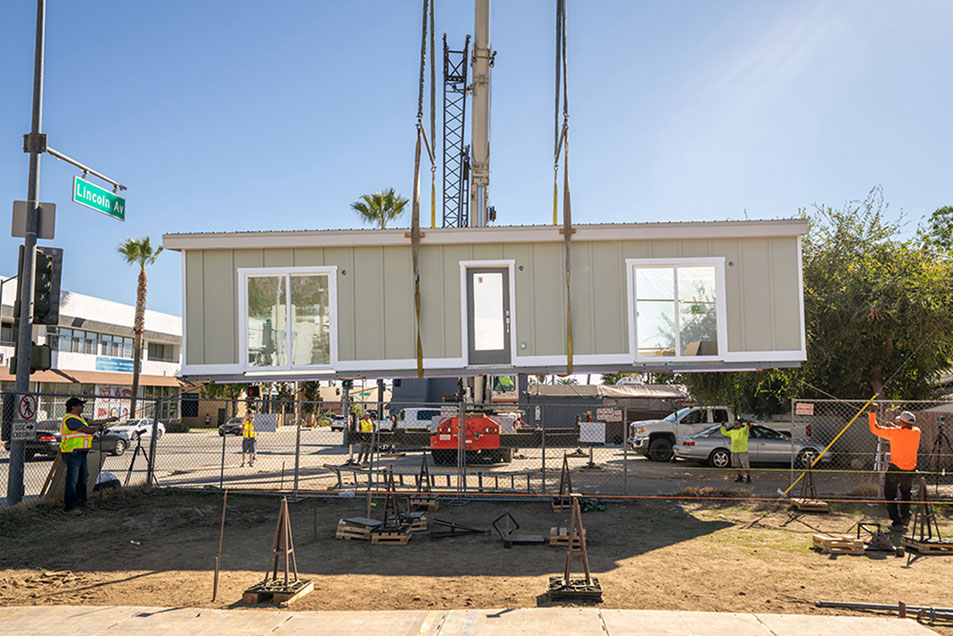
Rebuilding faster after fire
After wildfires destroyed thousands of homes, cityLAB-UCLA turned community-engaged research into action. The research center’s recently published “Altadena Prefab Housing Handbook” — developed with community partners and informed by residents affected by the Eaton fire — offers wildfire survivors a clear, practical guide to rebuilding faster and more affordably using prefabricated homes.
-

Using climate change science to help post-fire rebuilds solve the real problems
UCLA professor Alex Hall and a team of climate scientists have conducted research that conclusively shows how climate change made fire fuels 25% drier in the lead up to the January 2025 wildfires. The study has provided evidence-based information that has influenced the national conversation about rebuilding to prevent future disasters.
-
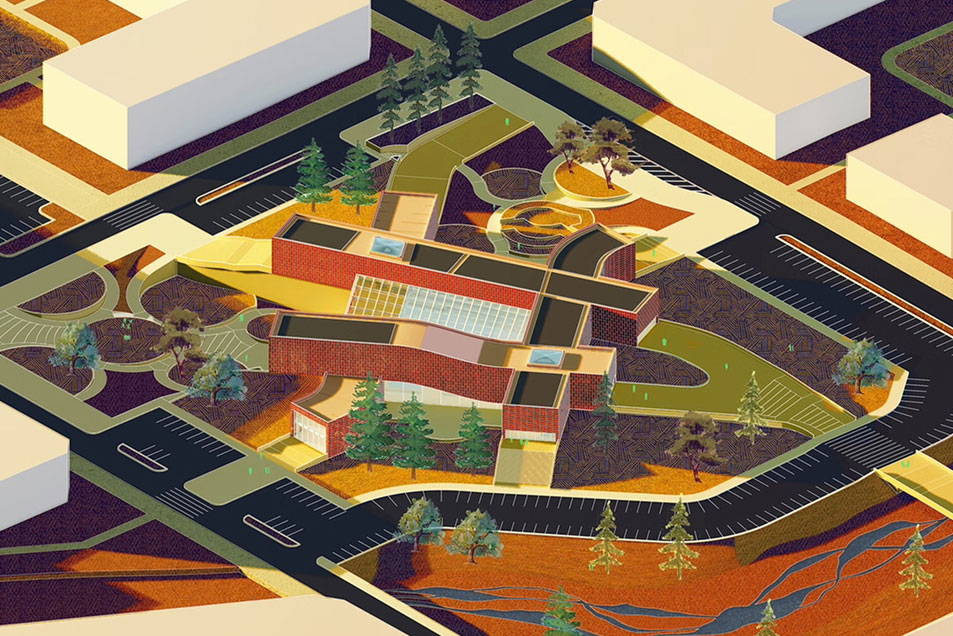
Rethinking cities in an age of fire
Wildfires are reshaping how Californians live, build and plan for the future. Led by UCLA faculty Hitoshi Abe and Jeffrey Inaba, the publication “FireCity FireLand: Towards a Regenerative Urbanism” distills three years of UCLA-led research examining how cities can adapt to growing wildfire risk, reimagining urban design at the wildland-urban interface that supports resilience, coexistence and long-term public safety.
-
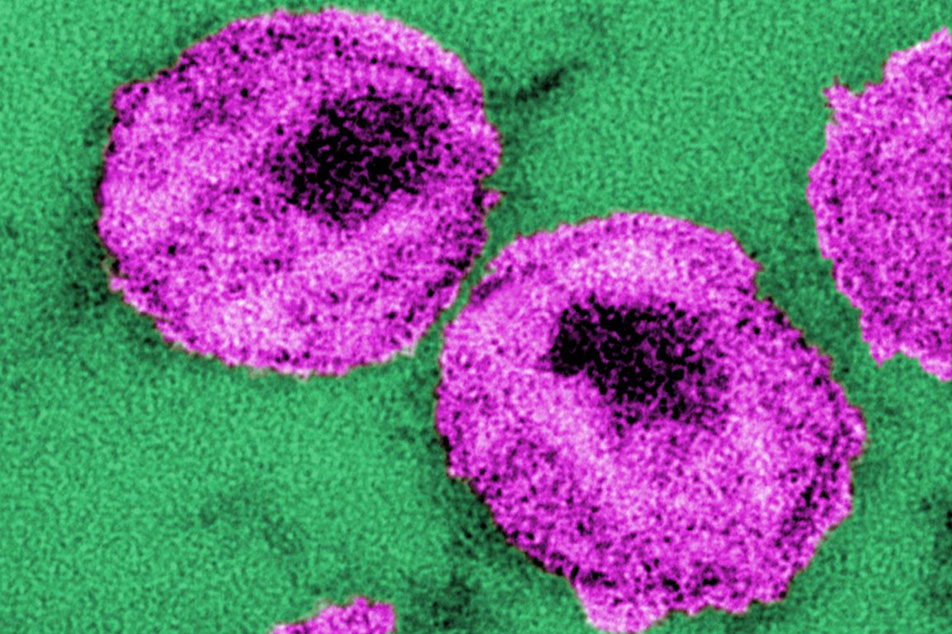
The fight to finally cure HIV
Immunology researcher Jerome Zack is a pioneer in developing innovative approaches aimed at eradicating HIV. With 40 million people worldwide still living with HIV and more than one million newly infected in 2024 alone, Zack believes stable funding is the key to turning scientific progress into a cure.
-

More sleep means better brain health
Director of UCLA’s Brain Research Institute Gina Poe and professor of ecology, evolutionary biology and computational medicine Van Savage are part of a team of researchers studying brain patterns during sleep, the critical role sleep plays in the maintenance and repair of neurons, and how a chronic lack of sleep can have serious consequences.
-

Making medicine affordable
In recent years, revolutionary advances in medicine have helped address some of the most pressing challenges to human health. But not everyone can afford these lifesaving treatments. Osvaldo Gutierrez, a UCLA professor of chemistry and biochemistry, has set out to change that.
-
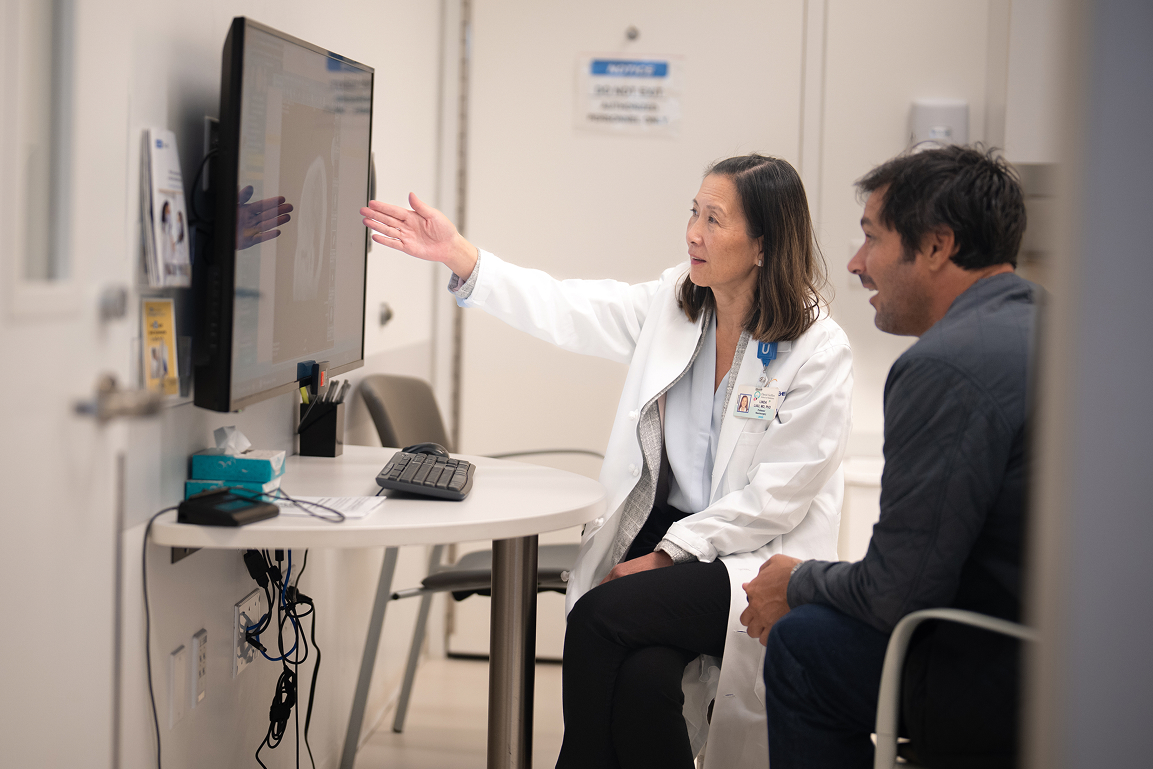
Beating brain cancer through vaccines and research
Across the university, surgeons and scientists are rethinking how to fight brain cancers, particularly glioblastoma, the most aggressive and deadly form of brain cancer. Among them are Linda Liau and Aparna Bhaduri, two researchers at UCLA Health Jonsson Comprehensive Cancer Center leading bold new approaches.
-
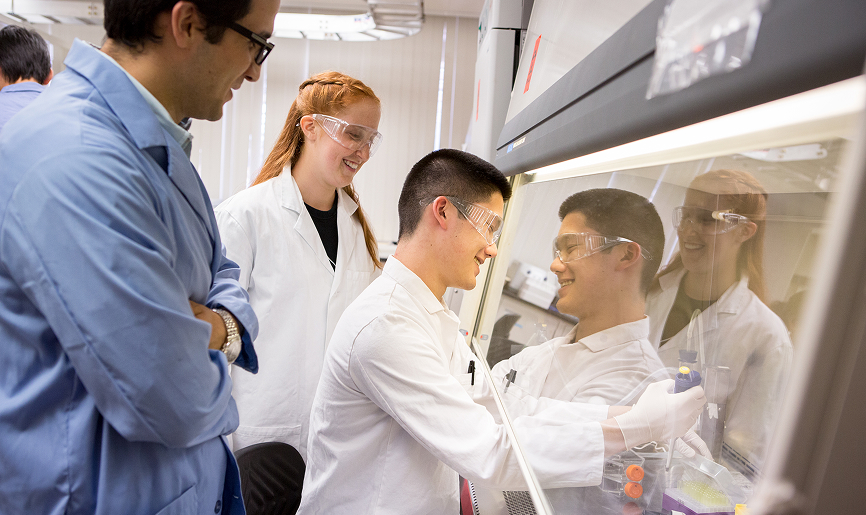
MRIs, Mozart and the wonders of mathematics
If you’ve had an MRI in recent years, you have UCLA mathematician and Fields Medal winner Terence Tao to thank for the technology. His foundational work in compressed sensing, conducted with Stanford professor Emmanuel Candès, paved the way for clinical techniques that use complex algorithms to create amazingly precise images from a tiny amount of data — cutting down the time and cost of the process and expanding its availability.
-
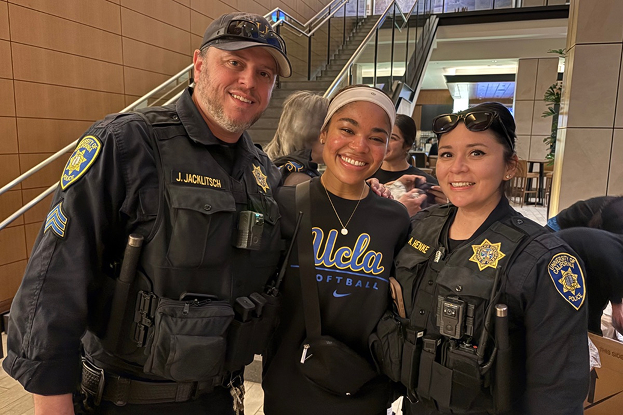
How Andrea Ghez unveiled the secrets of the stars
When world-renowned UCLA astrophysicist Andrea Ghez set out to map the heart of our galaxy, skeptics told her it couldn’t be done. Today she stands among science’s elite: a 2020 Nobel laureate — just the fourth woman ever awarded the prize in physics — for her pioneering discovery of the supermassive black hole at the center of the Milky Way.
-

Saving hearts, one machine at a time
When a patient's heart or lungs fail, time becomes the ultimate enemy. For Dr. Abbas Ardehali, Director of the Heart, Lung and Heart-Lung Transplant Programs at UCLA's David Geffen School of Medicine, that race against time has defined decades of groundbreaking research and innovation.
-

Better treatments for infertility
UCLA reproductive scientist Amander Clark is advancing infertility treatments by studying how stem cells develop into egg and sperm precursors, aiming to create functional reproductive cells in the lab.
-
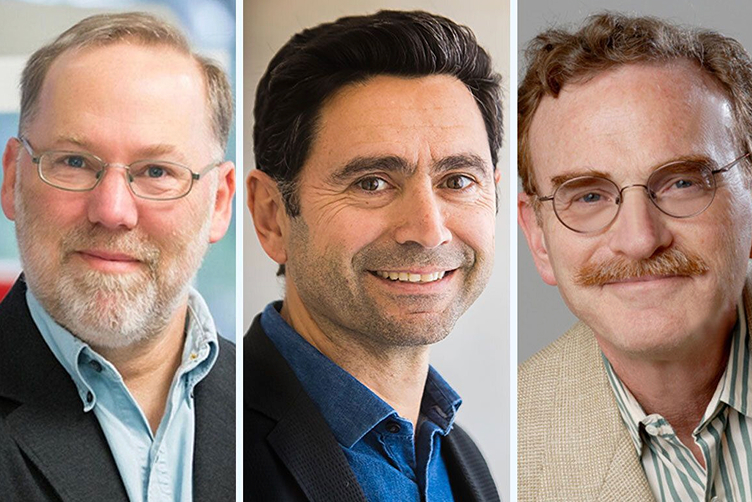
How Nobel Prize-winning Bruins changed the world
The Nobel Prize recognizes the world’s most celebrated innovators. Winners form a select group of leaders whose discoveries have left a lasting mark on humanity – and that group includes nine UCLA alumni.
-
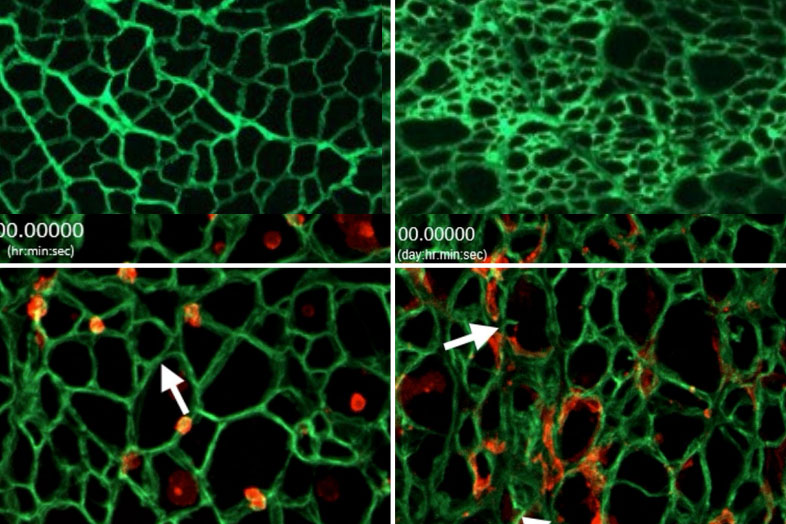
Treating muscular dystrophy
Advancing muscular dystrophy treatment by identifying sarcospan, a protein essential for stabilizing muscle cell membranes. Through the startup Pagoda Bio, they are developing gene-based and pharmaceutical therapies designed to reinforce muscle resilience and slow disease progression.
-
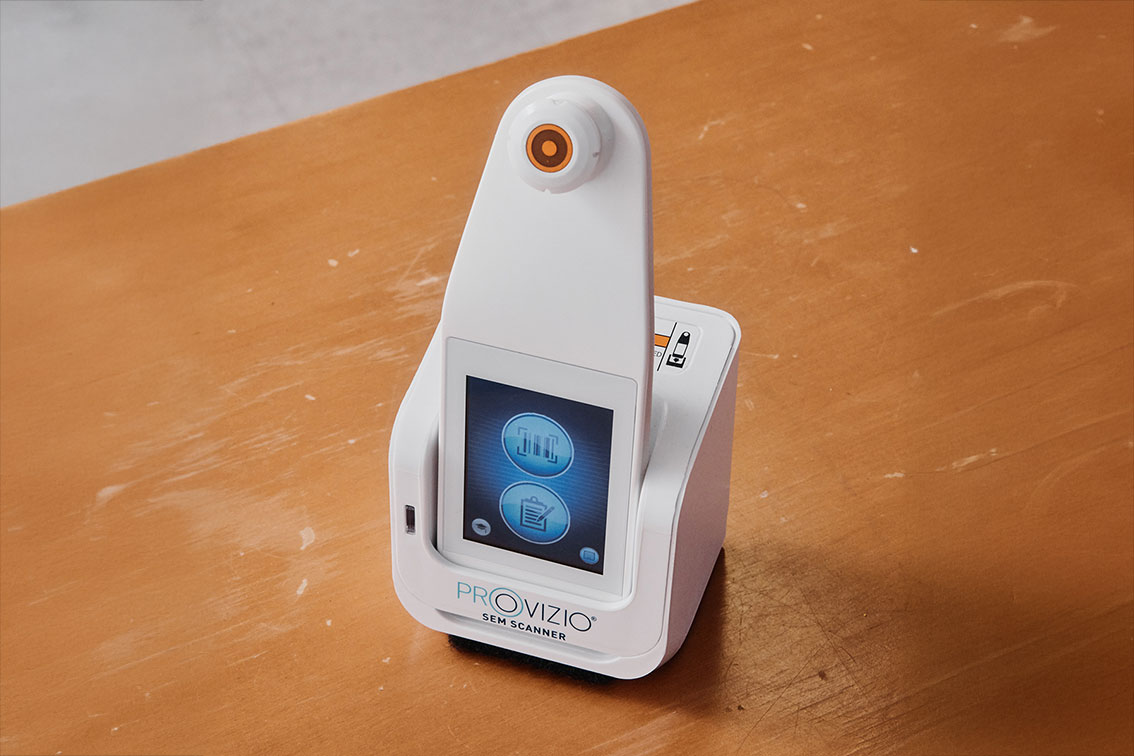
How UCLA’s Barbara Bates-Jensen revolutionized wound care
Pressure injuries are all too common in hospitals, an early indicator of serious issues. UCLA School of Nursing's Barbra Bates-Jensen helped create a fast, reliable device that can detect them in time to head off danger - and landed on Time magazine's list of best inventions.
-

Giving children with immunodeficiency a chance to lead a normal life
For children with the rare condition ADA-SCID, day-to-day activities like going to school or playing with friends can lead to dangerous, life-threatening infections. If untreated, ADA-SCID can be fatal within the first two years of life. A blood stem cell gene therapy co-developed by UCLA’s Dr. Donald Kohn restored immune function in 59 of 62 children with ADA-SCID, with no serious complications reported.
-
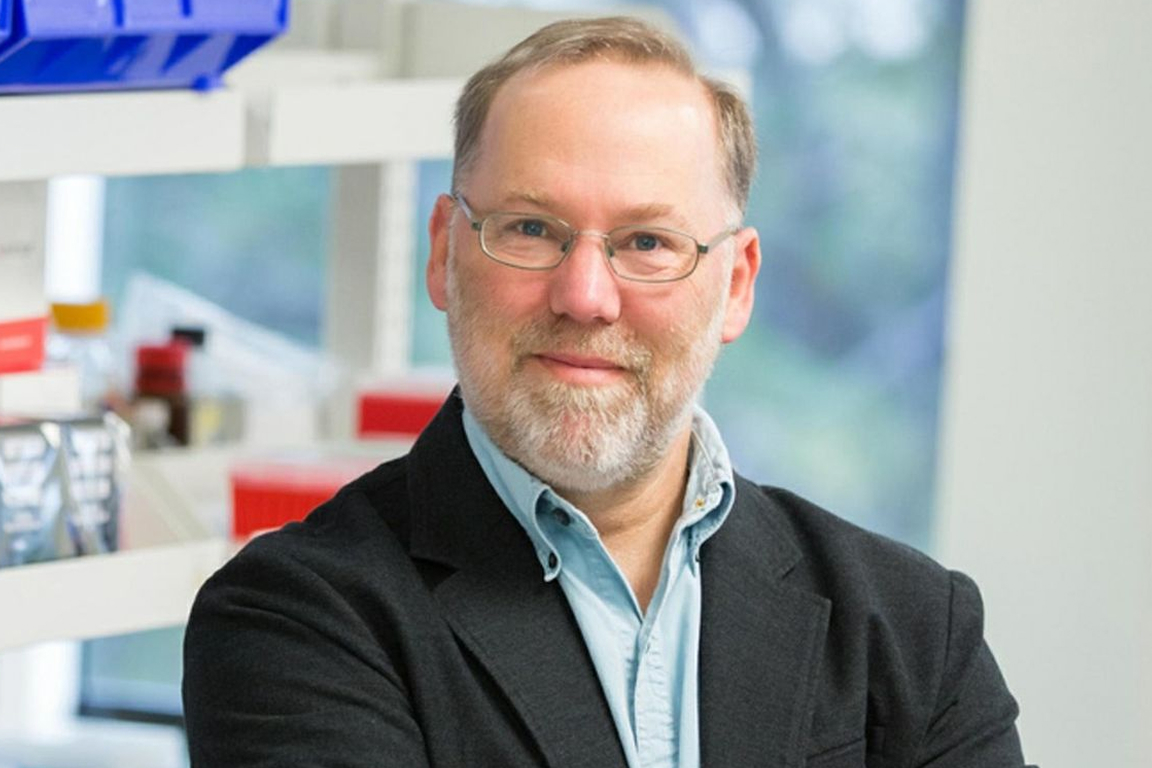
Bruin brilliance: UCLA alumnus Frederick Ramsdell wins the Nobel Prize
When Fred Ramsdell lost cellphone reception during a hiking trip deep in the Rocky Mountains, he had no idea history was calling. Twelve hours later, he emerged from the wilderness to discover he’d won the 2025 Nobel Prize in physiology or medicine.
-

Improving lives for people exposed to trauma
UCLA researchers are finding new treatments to ease the physical ailments caused by post-traumatic stress disorder. Their studies show that addressing the mental effects of trauma early on may help reduce risk of one such PTSD-linked complication: cardiovascular disease.
-
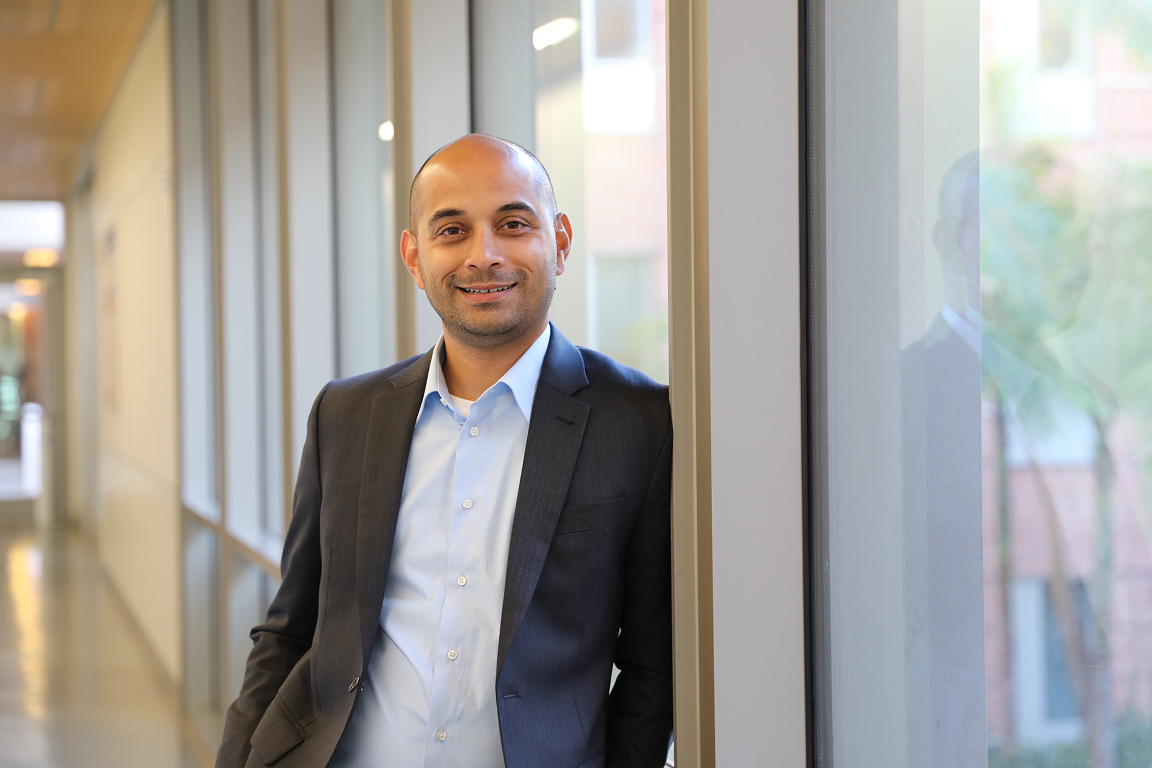
Curbing climate change, from land to sea
For Gaurav Sant, a third-generation civil engineer, humanity has never faced a greater challenge than climate change. With the window to claw back carbon emissions closing fast, Sant and his colleagues are racing against time to turn scientific research into real-world impact.
-
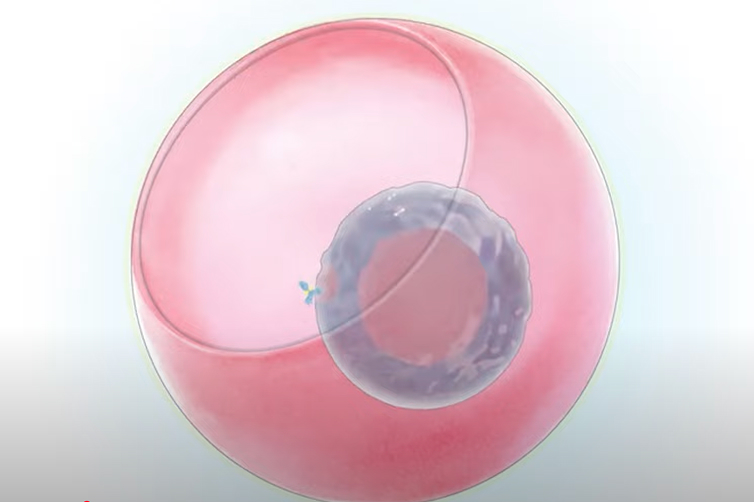
Engineering discoveries into solutions at the tiniest scales
For bioengineer Dino Di Carlo, invention is inseparable from practice. A professor at the UCLA Samueli School of Engineering, he moves fluidly between the worlds of discovery, translation and entrepreneurship — and back again.
-
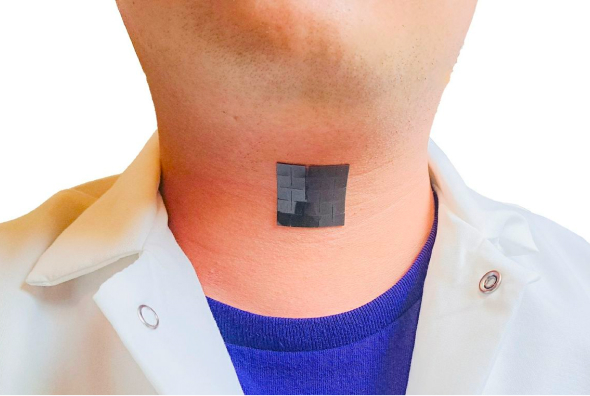
The lives and policies behind the data
Martha Bailey, a UCLA economic historian, leads LIFE-M, a groundbreaking data project that links birth, marriage, death, and census records across four generations to study how economic, educational, health, and environmental factors have shaped American lives since the 20th century.
-
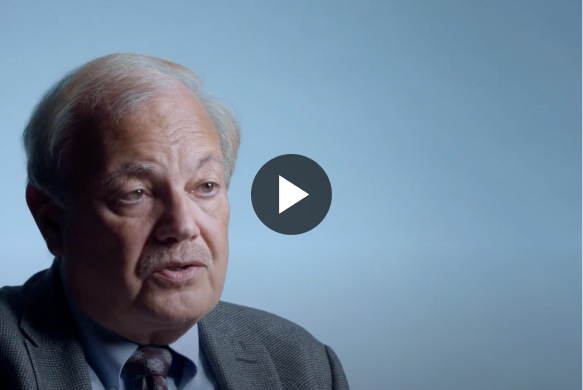
Researchers make progress toward a ‘pill’ for stroke recovery
Imagine a medicine that could help your brain heal after a stroke — without the grueling hours of physical therapy. That’s the promise of a new discovery by UCLA researchers who have identified a drug candidate that successfully mimics the effects of stroke rehabilitation in mice.
-

What’s the trick to aging well?
Castel and an international team of psychology researchers have shown that curiosity doesn’t have to fade with age — certain types of curiosity can persist into later life and actually increase. And better yet, they say, older adults who maintain their curiosity and are eager to learn new things relevant to their interests may be able to offset or even prevent cognitive decline and Alzheimer’s disease.
-

The true cost of abandoning science
What happens when the government turns its back on scientific research? UCLA’s Steven Furlanetto, a professor of physics and astronomy who studies ancient galaxies, powerfully and eloquently addressed this question in a recent opinion column for the Los Angeles Times.
-

A ‘miracle’ drug for leukemia
In 1995, Melvin Mann, a major in the U.S. Army and the father of an 8-year-old daughter, was diagnosed with a rare and deadly blood cancer called chronic myelogenous leukemia. Unable to find a suitable bone marrow donor, he was told he had only a few years to live.
-

Eating fish — without the fear of mercury
UCLA and UC San Diego researchers, funded by the National Science Foundation, have developed a probiotic that detoxifies methylmercury, a toxic form of mercury found in seafood like bluefin tuna. This could benefit pregnant women and those with fish-heavy diets by reducing risks of mercury poisoning and birth defects.
Stand Up for UCLA Research
Federal research funding to UCLA remains at risk. Life-saving care, educational access and technological and economic progress hang in the balance.
We need your support. Funding from the NSF and NIH has been restored for the time being, but there’s still more work to do. The future of world-changing research at one of our nation’s leading public universities is at stake. Together, we can stand up for UCLA.
UCLA Research in the News
-
UCLA experts on lasting toll of fires on mental and physical health
UCLA public health researchers Yifang Zhu and David Eisenman were both interviewed for an article by The Atlantic on the lasting dangers of the Los Angeles fires. Zhu’s team has documented the existence of toxic chemicals off-gassing in homes and from household materials after the fires. Eisenman studies both the physical and mental health impacts of disasters. “We know this is going to not be the last one in L.A., and L.A. won’t be the last city to have this level of megafires,” Zhu said.
The Atlantic -
UCLA lab develops 3D molecules with promise for new pharmaceuticals
The Debrief reported on UCLA chemistry professor Neil Garg and his research team having created new three-dimensional molecular structures – a finding that can lead to partnerships with the pharmaceutical industry and the next generation of medicinal research. “In my lab, three things are most important. One is pushing the fundamentals of what we know. Second is doing chemistry that may be useful to others and have practical value for society. And third is training all the really bright people who come to UCLA for a world-class education and then go into academia, where they continue to discover new things and teach others, or into industry, where they’re making medicines or doing other cool things to benefit our world,” said Garg.
The Debrief -
New UCLA AI tool targets Alzheimer's cases often missed in early diagnosis
ABC7 Eyewitness News Los Angeles reported on UCLA researchers using artificial intelligence to detect early signs of Alzheimer’s disease. UCLA neurologist Dr. Timothy Chang and his team are able to detect up to 80% of people who would have otherwise not been diagnosed — an accuracy that’s more than double that of other detection models. “There are new therapies that can be prescribed if you have early Alzheimer’s disease now, so that’s another main interest of why we want to identify patients as early as possible.”
ABC7 Eyewitness News
Innovation Starts Here
UCLA discoveries and scholarship drive innovation that keeps our country healthy and safe. Our research propels medical breakthroughs, fuels economic growth, strengthens national security and enhances global competitiveness — all vital national priorities. Americans’ work, health and future depend on the groundbreaking work we do.
Nearly 260 companies have licensed technologies developed here. UCLA faculty created more than 280 inventions in the 2024 fiscal year alone. Technology begins with research. Stopping this research would be devastating for UCLA and for Americans across the nation.
-
Bruin legend Kareem Abdul-Jabbar speaks from the heart about UCLA’s impact on his life, career and health
-

-
I participated in research as an undergraduate at UCLA and now work at a science-based environmental nonprofit. The work that we engaged in was integral to the work I do now to protect Los Angeles' coastline from extractive use... Science is integral to ensuring our society moves forward and is powered by the process of curiosity and inquiry.”
Zoë Collins
UCLA Alum -

-
How to assign a value to the seven years of additional, precious life my now deceased husband and I shared after he was diagnosed at UCLA with advanced melanoma thanks to Dr. Anthony Riba's ground-breaking research? Beyond dollars and cents.”
Laurie Levin
UCLA Alum -

-
I was a member of the Center for Research Excellence C.A.R.E. program at UCLA as an undergraduate. It was my first opportunity to start working in the lab - the stepping stone into a research career. Now, I am a successful, internationally known scientist in Switzerland at Empa.”
Caroline Reyes
UCLA Alum -

What’s Your UCLA Research Story?
Have UCLA and our research benefited you or someone you love? Tell your story on social media using the hashtag #ResearchPowersProgress, or share it with us.

